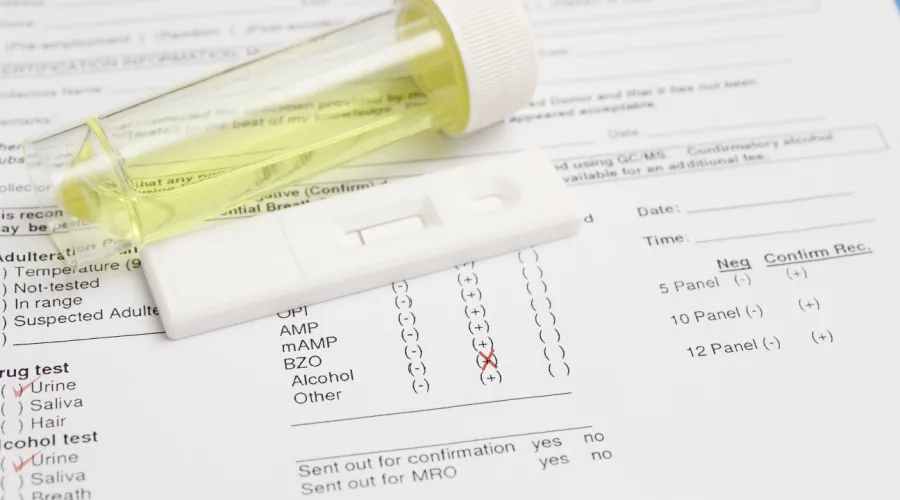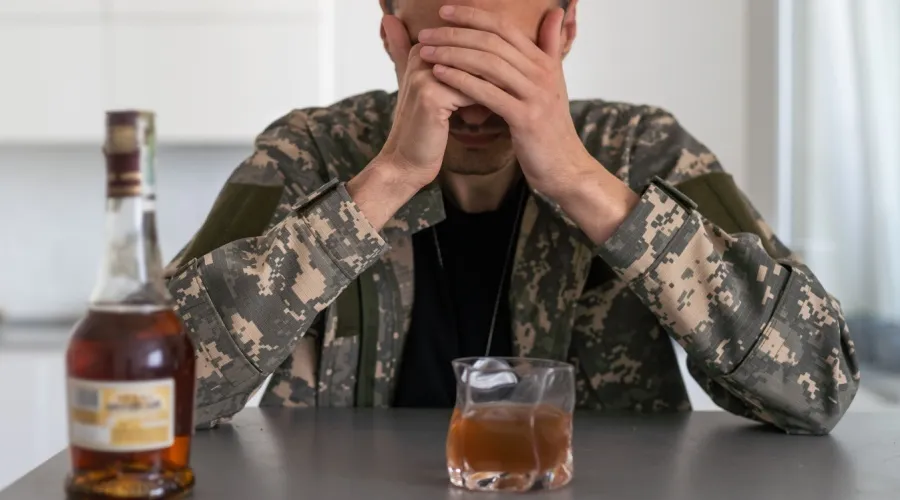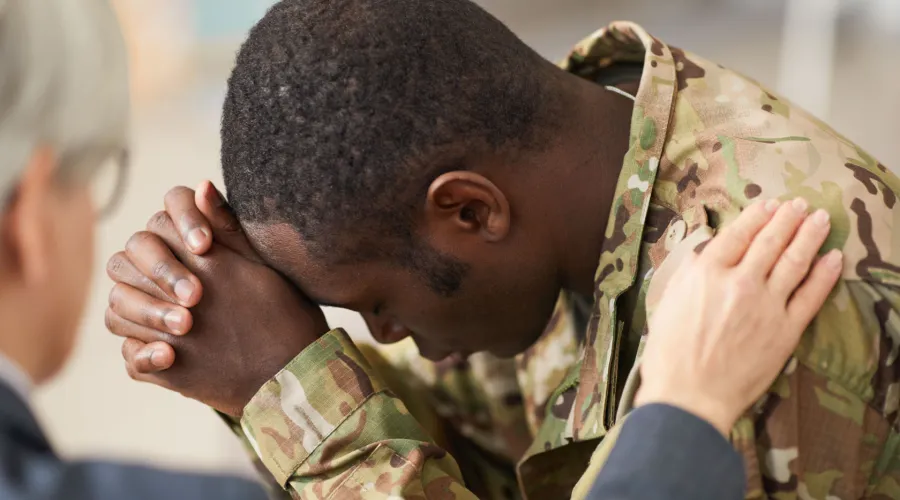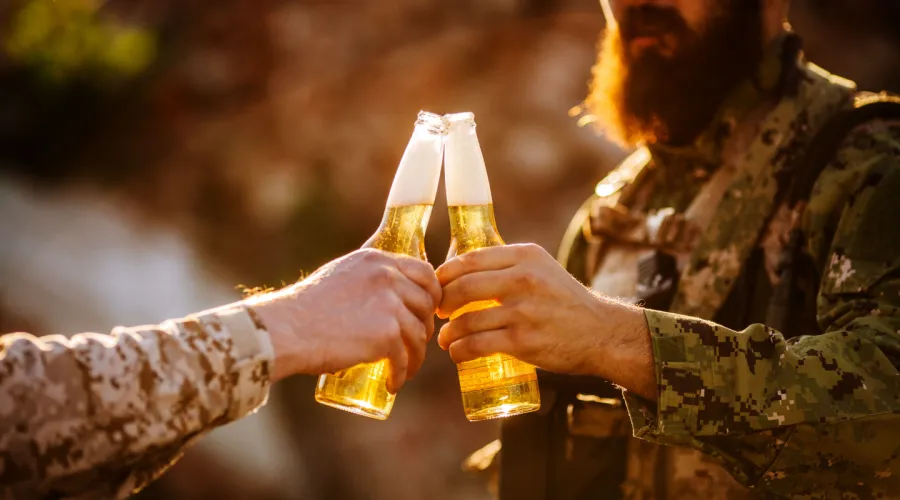updated 11/17/25
Understanding Military Alcohol and Drug Testing Procedures
When it comes to drug testing in the military, one of the most frequently asked questions is whether alcohol is included in the screening process. Given the nature of military service and its strict policies around substance use, this is a valid concern.
The military has very specific protocols for maintaining readiness and ensuring that service members remain fit for duty, which includes substance testing. So, do military drug tests test for alcohol?
In this article from the expert team at TriCareRehabs.com, we will explore how military drug tests work, whether alcohol is tested for, and what the implications are for service members who might be concerned about alcohol use.
Does Military Urinalysis Testing Detect Alcohol?

Military drug testing is an essential part of maintaining operational readiness in all branches of the armed forces. These tests are designed to detect the use of illegal drugs or substances that could impair a service member’s ability to perform their duties.
The Department of Defense (DoD) has established a strict policy regarding substance abuse, emphasizing that any use of illegal drugs or substances that impair performance is unacceptable. Drug testing in the military is usually conducted using a urine test, although blood and hair tests may also be used in certain situations.
These tests are designed to detect specific substances, which are chosen based on their potential impact on an individual’s ability to carry out their responsibilities. The list of substances typically includes drugs like marijuana, cocaine, opioids, kratom, and amphetamines, among others. For a full list of what drugs the military tests for, please visit the link of the same name.
What are the Core Types of Military Drug Tests?
The military employs various types of drug tests to ensure the safety and integrity of its personnel. These tests are designed to detect the presence of illicit substances in a service member’s system.
By employing these various testing methods, the military ensures that it can accurately detect and address substance use, thereby maintaining the safety and readiness of its personnel. And if a test has been taken and positive results were produced, please review our resource on failing drug tests in the military for more information and support.
The most common types of military drug tests include:
Urinalysis Testing
This is the most widely used method of drug testing in the military. Urinalysis testing involves collecting a urine sample from the service member and analyzing it for the presence of drug metabolites. This method is favored for its accuracy and efficiency in detecting recent drug use.
Blood Tests
Blood tests are used to detect the presence of drugs in a service member’s system. These tests are typically used to confirm the results of a urinalysis test or to detect the presence of drugs that may not be detectable through urinalysis. Blood tests provide a more immediate snapshot of drug use, making them useful in situations where recent consumption is suspected.
Hair Follicle Tests
Hair follicle tests are used to detect the presence of drugs in a service member’s system over a longer period. These tests involve analyzing a sample of hair for the presence of drug metabolites. Hair follicle tests can reveal drug use over the past several months, providing a comprehensive view of a service member’s substance use history.
Saliva Tests
Saliva tests are used to detect the presence of drugs in a service member’s system. These tests involve analyzing a sample of saliva for the presence of drug metabolites. Saliva tests are less invasive and can be conducted quickly, making them a convenient option for on-the-spot testing.
The Question: Does Military Drug Testing Include Alcohol?
Unlike illegal drugs, alcohol is not typically included in standard military drug tests. This is largely because alcohol is legal for adults in most of the United States, and its presence is not automatically deemed as indicative of impaired performance or fitness for duty. However, this does not mean that alcohol use is without consequence in the military.
In cases where alcohol use is suspected, probable cause must be established to justify conducting a urine test for alcohol. This legal threshold ensures a balance between maintaining a drug-free military environment and protecting the rights of service members.
The military operates under a zero-tolerance policy for substances that impair performance, and alcohol is no exception. While it is not part of routine drug testing, alcohol consumption can still result in disciplinary action if it leads to impairment or misconduct.
Alcohol Use and the Military: Policies and Regulations
Though alcohol is not part of standard drug testing panels, the military has strict rules when it comes to its use. Each branch of the military has its own set of guidelines for alcohol consumption, and these policies are designed to ensure that service members maintain a high level of readiness at all times.
For instance, alcohol use is strictly regulated during deployments, field exercises, and certain training environments. The military also has policies that restrict alcohol consumption during certain hours, such as during duty hours or in specific areas of operation. Just as with civilians, there are also laws surrounding DUIs in the military.
Violating these rules can result in serious consequences, including administrative actions, counseling, and even discharge, depending on the severity of the violation. The military also offers various resources and programs aimed at prevention, helping service members avoid substance misuse and maintain their readiness.
Alcohol and Performance
Alcohol use can significantly impact a service member’s performance, leading to issues like impaired judgment, slower reaction times, and decreased motor skills. These effects are especially concerning in high-stakes environments where service members are required to be at their best, such as during combat or while operating sensitive equipment.
Support from various sources, including family and military programs, is crucial for maintaining motivation and ensuring long-term recovery from alcohol misuse.
Because of these risks, the military enforces strict alcohol policies. Service members who are caught using alcohol in a way that impairs their ability to perform their duties could face disciplinary actions, even if their behavior does not show up on a routine drug test.
What Happens if Alcohol is Suspected in an Incident on Duty?
If a service member is suspected of being under the influence of alcohol, the military has the authority to conduct tests to determine whether alcohol is present in their system. These tests are separate from standard drug tests and may include breathalyzer tests, blood tests, or urine tests specifically designed to detect alcohol.
If alcohol use is suspected, a test may be ordered to determine the service member’s fitness for duty. When alcohol use is suspected, the military will generally take immediate action to determine the service member’s fitness for duty. If the test confirms alcohol use, the service member could face consequences ranging from counseling and non-judicial punishment to more severe disciplinary measures, including a potential discharge from service.
What Are Random and Probable Cause Testing for Alcohol and Drugs in the Military?
Although alcohol is not included in standard drug tests, the military conducts random drug testing programs to maintain a drug-free environment. These tests primarily look for illegal substances, but if alcohol is suspected, a service member may be subjected to additional testing.
For example, if a service member appears intoxicated or is exhibiting behavior that suggests alcohol use, they may be asked to submit to a breathalyzer test or a blood test. For-cause testing requires establishing probable cause to ensure that the testing process is lawful and justified.
Random drug testing, which is a common practice in the military, is typically designed to detect illegal substances like marijuana, cocaine, and opioids. However, alcohol can be tested for in certain situations, especially if a service member’s behavior raises concerns about their ability to carry out their duties effectively.
Handling Alcohol and Drug Test Results in the Military
When a service member tests positive for drugs, the military follows a strict protocol for handling the test results. The process typically involves the following steps:
- Initial Review: The test results are reviewed by the military’s drug testing laboratory to ensure that the results are accurate and reliable. This initial review is crucial for maintaining the integrity of the testing process and ensuring that no errors have occurred.
- Confirmation Testing: If the initial test results are positive, the military may conduct additional testing to confirm the results. This may involve re-testing the original sample or collecting a new sample for testing. Confirmation testing helps to eliminate any doubts and provides a solid basis for any subsequent actions.
- Notification: The service member is notified of the test results and informed of the next steps in the process. This step ensures transparency and allows the service member to understand the implications of the test results.
- Referral to a Substance Abuse Program: If the service member tests positive for drugs, they may be referred to a substance abuse program for treatment and counseling.
- Administrative Action: The military may take administrative action against the service member, including separation from service or reduction in rank. These actions are taken to maintain order and accountability within the ranks, ensuring that all service members adhere to the military’s strict substance use policies.
- Court-Martial: In some cases, the service member may be subject to a court-martial for violating the military’s drug policy. A court-martial can result in severe penalties, including a dishonorable discharge, which underscores the seriousness with which the military treats substance misuse.
It is important to note that the military’s drug testing program is designed to ensure the safety and integrity of its personnel. The program is intended to prevent drug use and to provide support and treatment to service members who may be struggling with addiction. By following these protocols, the military aims to maintain a drug-free environment and uphold the high standards expected of its service members.
The Consequences of Alcohol Misuse in the Army Substance Abuse Program
While alcohol use is legal and is not routinely tested for in drug screenings, its misuse or abuse can lead to serious consequences for military personnel. The military offers various prevention programs aimed at helping service members avoid substance misuse and maintain their readiness.
Service members who drink excessively or in violation of military policies could face a range of penalties, including:
- Counseling or Education Programs: In some cases, service members may be required to attend counseling or education programs aimed at addressing substance use issues. These programs are often part of a rehabilitation process.
- Non-Judicial Punishment (NJP): For minor violations, service members may face non-judicial punishment. This could involve a reduction in rank, extra duties, or loss of pay, depending on the nature of the infraction.
- Court-Martial: In more serious cases, particularly if alcohol misuse leads to misconduct or is part of a broader pattern of behavior, a court-martial may be necessary. This could lead to a dishonorable discharge or other severe penalties.
- Discharge: In the most extreme cases, a service member may be discharged from the military for alcohol-related issues, particularly if those issues interfere with their ability to perform their duties.
The Impact of a DUI on Military Personnel
One of the most severe consequences of alcohol misuse in the military is a Driving Under the Influence (DUI) charge. If a service member is caught driving under the influence of alcohol, the consequences can be significant. A DUI conviction can result in:
- Administrative separation or discharge
- Loss of military benefits
- Severe impacts on career progression
A DUI conviction can have long-term consequences on a service member’s career and benefits, making it crucial to seek support and rehabilitation.
Given the importance of maintaining good conduct, the military holds its members to high standards when it comes to alcohol use. DUI charges are taken very seriously, and service members who are found guilty of driving under the influence may face significant legal and professional consequences.
Alcohol Abuse Prevention and Mental Health Support in the Military
Mental health is an essential aspect of overall military readiness, and alcohol misuse can exacerbate existing mental health challenges. The military is committed to providing mental health resources and support for its service members, but alcohol abuse can complicate these efforts.
Many service members who struggle with alcohol misuse also face underlying issues such as post-traumatic stress disorder (PTSD), depression, or anxiety. In these cases, alcohol abuse can worsen symptoms and interfere with treatment. The military offers various mental health resources and prevention programs to help service members cope with challenges and avoid substance misuse.
The military encourages service members to seek help for mental health concerns, and there are a variety of programs available to assist individuals struggling with substance use disorders. These programs are designed to offer support and rehabilitation to those in need, helping to ensure that service members remain fit for duty and are able to cope with the challenges they face.
Find Treatment Services and Get Support for Issues with Alcohol Today
While alcohol is not routinely tested for in standard military drug tests, it remains a substance that the military takes very seriously. The military has strict policies regarding alcohol use, and service members must follow these protocols to avoid serious consequences.
That being said, no one is perfect, nor are they immune to falling into habits of alcohol and drug abuse. If you are struggling with alcohol addiction, you are not alone. TRICARE Rehabs understands the unique circumstances faced by military personnel and can connect you with treatment services to help you kick your alcohol abuse for good.
Please reach out for our confidential support now!
- EMDR Treatments for Substance Abuse in the Military - April 29, 2025
- Do Military Drug Tests Test for Alcohol? - April 1, 2025
- What is a Veteran Life Coach? - March 28, 2025



